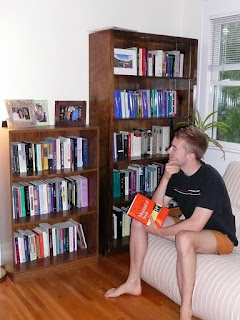Reflections on a Decade of Teaching

(Joel in 2007. . . and in 2017) When I entered the classroom in Duke’s Perkins Library for the beginning of my first ever course, I had a flutter of nervousness just like when I would mount the stage at one of my many piano recitals – a sudden lightness in my stomach as my hands began to perspire. But when I saw the students sitting around the long seminar table, another feeling immediately overtook the first: gratitude. Look at these interesting people all eager to learn something! And I’m the professor! I can’t believe this is my job. Forming that first class were students from Canada, China, Kazakstan, and the United States. I had students from north and south, east and west. I had a high school student, a senior who only needed these credits to graduate, and a midcareer public servant completing his policy degree. And we all assembled to study political philosophy. I remember that I introduced myself and asked the students to introduce one another. Then I lea...